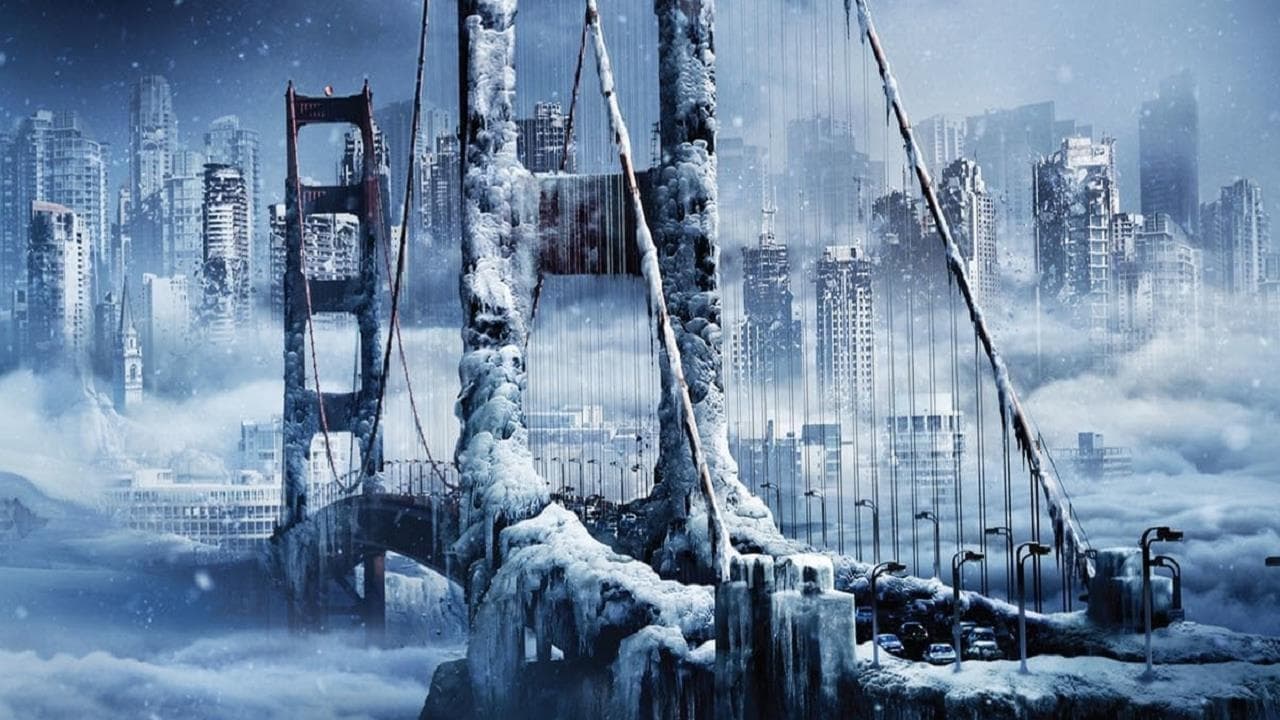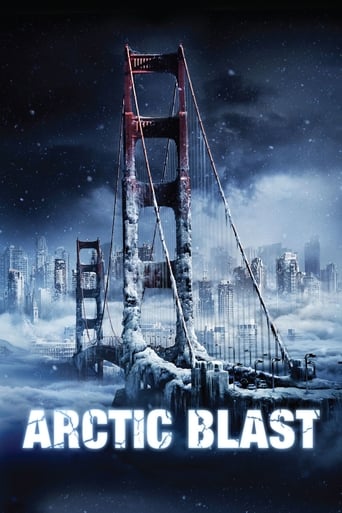

Brian Trenchard Smith's 2010 film Arctic Blast centers on the disastrous consequences of the highly likely occurrence of a hole in the ozone layer caused by a solar eclipse. This hole then leads to extremely cold temperatures that instantly kill people, and freeze crew ships. However, the surrounding bodies of water are fine. At this point, I really hope you are picking up on my sarcasm. Despite the brilliant acting, the science behind the film was probably stolen from a nine-year-old child's geography binder. To emphasize, a nine-year-old who has an over-active imagination. For example, this fatal disaster of a hole in the ozone layer, is created by a solar eclipse. This is completely invalid because these ozone holes are actually created by CFCs (Chlorofluorocarbons- chemicals containing chlorine, fluorine and carbon atoms). This chemical is mainly found in industrialized aerosols. Another flaw in the film's disastrous hole is that they claim it was caused by the mesosphere holding so much air that it freezes the air below. This is wrong because the mesosphere is way too thin to hold high amounts of air.The film's opening credits state that the temperature of the mesosphere can decrease to -140˚F (despite being an Australian movie, where the Celsius scale is used). This is invalid because the mesosphere can only reach down to -90˚C, which is -130˚F. The credits also say that the ozone layer is the only thing that protects us. This is wrong because for example, the mesosphere also protects us. It can protect humans from solar radiation up to wavelengths of 175 nm. As for the validity on the effects that the extreme cold had on the body, they were all correct. Just kidding. These were wrong too. The film showed us that the temperature was so cold, that humans instantly froze to death. This is invalid because it is not as instant as you think; frostbite for example can take up to thirty minutes after the body gets into shock. What's also puzzling abut the human body science behind this movie, is that though the people and crew ships were cold enough to freeze, the bodies of water were somehow still intact. In the end, they save the day by having nature fight nature. They decide to create lightning in the mesosphere to fight off the rifts. This is also wrong. Weather occurs in the troposphere, not the mesosphere. Besides the invalidity of the science behind the film, there are some lessons to be learned from the human responses to the disaster. The humans reacted stupidly, except for Jack the main character. He was the only smart person throughout the entire film. (That's saying a lot because he had the intelligent idea of saving the world by putting weather in the mesosphere). For example, the instant Jack realizes there is a disaster coming, others as well as his crew shrug it off and tell him to keep his mouth shut because there is no factual evidence. Jack's father-in-law exhibits the greatest display of stupidity. As he is warned about the cold-front, he says "cold fronts can't kill". However, when the warnings are officially broadcasted, people bombard stores to buy blankets, propane tanks and heaters. Unless the heaters are wireless, they were pointless because the fog clouds knocked out all the power in its sight. Thus, the reactions were stupid and not well-planned.Overall, the lesson learned is that humans should react to disasters using more of their brain cells, and actors who play scientists are not real scientists. I enjoyed the Australian accents though.
... View More"Jack Tate" (Michael Shanks) is a meteorologist who is totally devoted to his work--at the expense of his family. As a result he is pending a divorce from his wife, "Emma Tate" (Alexandra Davies) and their 16 year old daughter "Naomi Tate" (Indiana Evans) blames him as well. Yet even though he plans to spend more time with his family a solar eclipse suddenly triggers a hole in the ozone which produces a deadly arctic blast which he believes endangers the entire planet. Unfortunately, nobody believes his dire predictions and while he races to find a solution to the problem he finds that his credibility is seriously being questioned by his superiors and family alike. Now rather than reveal any more of the plot and risk ruining the film for those who haven't seen it I will just say that this was a rather preposterous but still mildly entertaining movie all the same. I say this because, although I liked the overall concept of the movie, the science behind it was more than a little dubious to say the least. In any case I've definitely seen worse "natural disaster" films and for that reason I rate this movie as only slightly below average.
... View MoreMy initial response to this film was unfairly snide, searching the lead actor's face in vain for simple change of expression. But although it took some time, I was finally able to find redeeming value in this tepid disaster film; this apparent new sub-genre of divorced dads winning back their families by saving them from natural disasters might have some worth if you take a drink every time you see someone on the phone. Of course having a character talk on the phone does not contribute any sense of urgency or suspense. In fact watching people talk on the phone in films is as annoying as watching them talk on the phone in real life - but this film is annoying enough to leave you falling down drunk. Three sips for speaker-phone, two sips for a headset, this film promises a good time.
... View MoreI found this movie to be very similar to the movies Absolute Zero and The Day After Tomorrow. All three movies have a sudden deep freeze as the main theme. Of course you have the lone scientist who goes against the theories of the main stream scientists and gets ostracized for it. Then of course it turns out that he is the only one who is right and all the others are wrong. They screw things up more by trying to fix it with the wrong approach and in the end it is up to our outsider scientist hero to save the world. And of course you have to have the scientist be a dad who has to go rescue his kid. It's really nothing new, it's the same old story, just told in a slightly different way. An OK movie to watch, but too predictable.
... View More